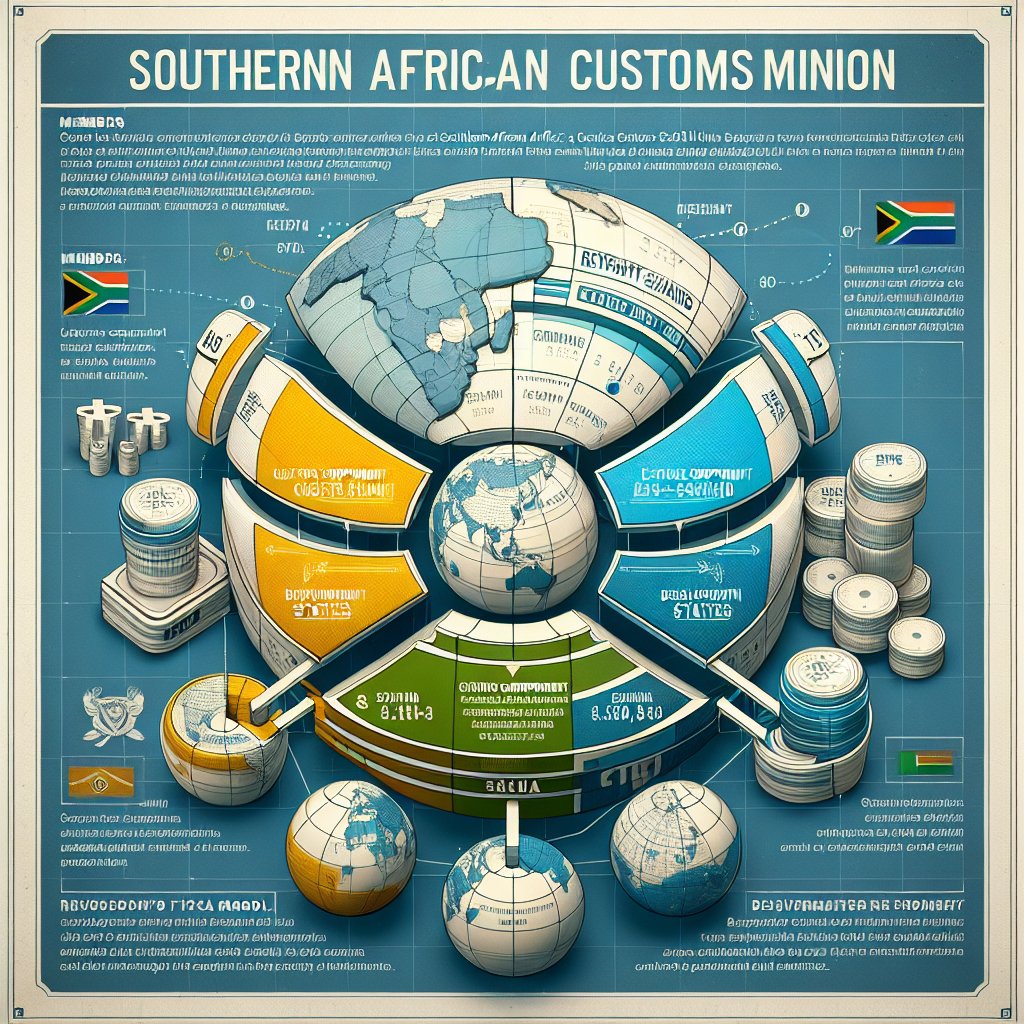Image created by AI
South Africa's Potential Savings of R90 Billion Hinge on SACU Revenue-Sharing Reformation
In an illuminating revelation from the National Treasury's full Budget Review, a strategy has come to light that could lead to South Africa saving a substantial R89.9 billion in the next fiscal year. This possibility emerges from the current mechanisms governing the distribution of revenues within the Southern African Customs Union (SACU), the world's oldest customs union, whose members, alongside South Africa, include Botswana, Lesotho, Eswatini, and Namibia.
At the core of this issue is the proportion of revenue shared by SACU member states—revenue primarily generated by trade within the group. Historical ties bind the countries together, with roots stretching back to the 1889 agreement between British and Boer territories, culminating in today's union, which now aims to foster economic development through trade coordination in the region. Despite this communal objective, South Africa, with its significantly larger economy compared to its partners, finds itself on the deficit end of the financial arrangements as stipulated by the 2002 SACU Agreement.
Under the current revenue-sharing model, SACU collects tariffs and duties on trades between its members and then redistributes the funds based on a threefold formula: the customs component, the excise component, and the development component. While the excise component favors South Africa due to its large GDP, accounting for about 90% of SACU's aggregate economy, the customs and development components are more generous to smaller economies within SACU. These latter two components are focused on supporting the less developed member states' economic growth and are not proportionate to South Africa's sizeable trade activity within the union.
This arrangement results in South Africa, as the union's primary exporter and key economic powerhouse, receiving a significantly smaller slice of the customs revenue pie and the least from the development component fund. The heavy disparity is seen in the Customs Union receipts reported by South Africa’s revenue services, which then form a hefty expenditure item in the national budget. The figure for 2023/24 stood at R79.8 billion, expected to swell even further to R89.9 billion in the upcoming fiscal year.
There is, however, a feasible route to alleviating this pronounced financial outlay. The implementation of a revised revenue-sharing model, more reflective of South Africa's central role and economic contribution to SACU, could retain billions within the nation’s coffers. The crux of the matter lies in negotiating terms that are equitable, leveraging South Africa's economic gravity to forge an agreement that is sympathetic to its position. Such a recalibrated arrangement would not only cushion South Africa's budget but might also stimulate more sustainable development dynamics within the union.
Admittedly, the move for a revenue-sharing model reformation would require a delicate balance between maintaining the developmental objectives of SACU and ensuring a fair distribution of earnings to reflect South Africa’s substantial contribution to regional trade. The Treasury’s spotlight on this issue in the Budget Review serves as a motivator for potential enhancements to the economic cohesion and financial cooperation among SACU nations—a task with both immediate and long-term fiscal significance for South Africa.










